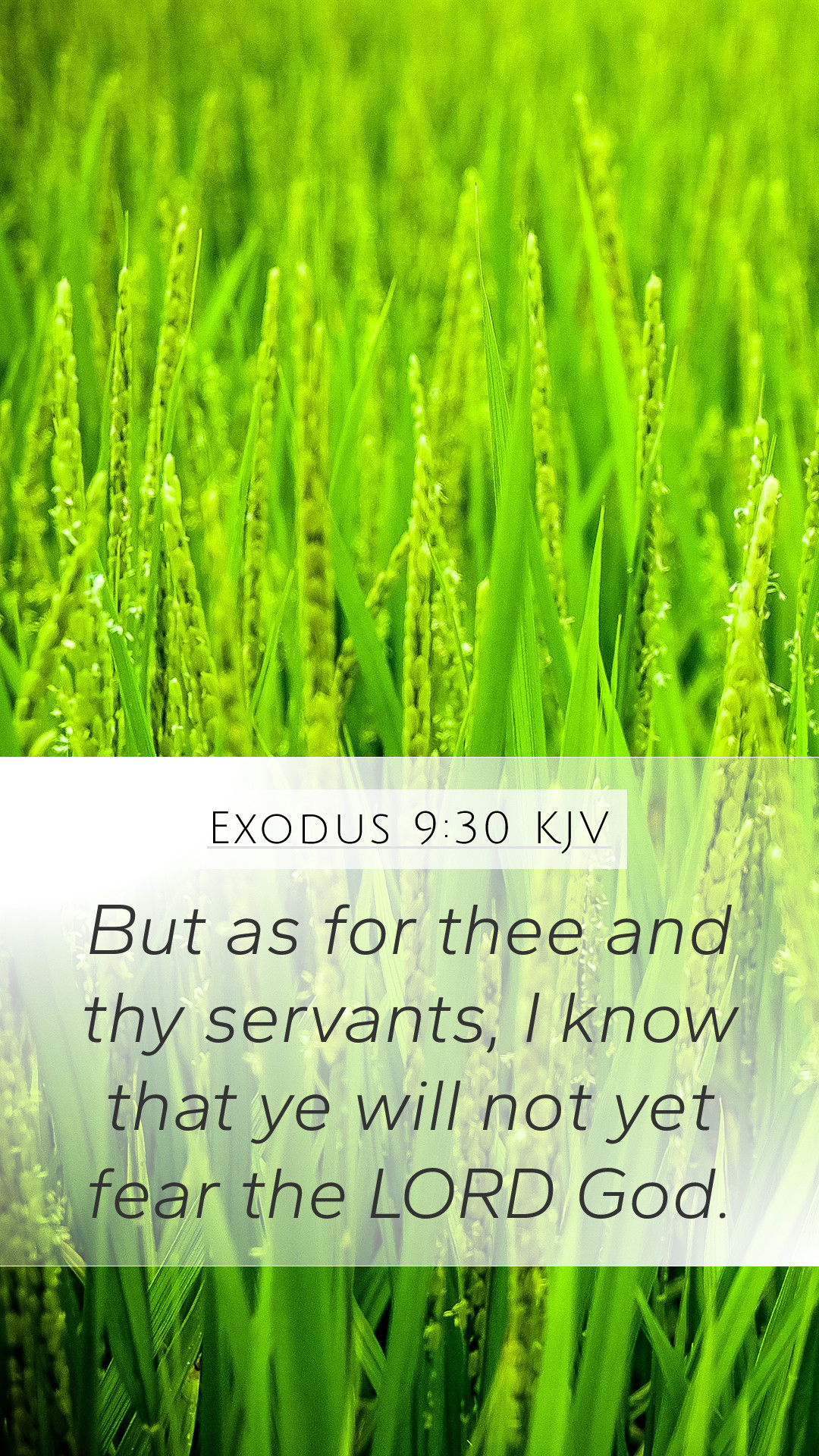Understanding Exodus 9:30
Exodus 9:30 states:
"But as for you and your servants, I know that you will not yet fear the Lord God."
Bible Verse Explanation
This verse comes from a pivotal moment during the plagues of Egypt, highlighting the hardened heart of Pharaoh and his refusal to acknowledge God's power. The refusal to fear the Lord signifies a deeper spiritual blindness and a defiance of divine authority.
Bible Verse Commentary
-
Matthew Henry notes that this verse emphasizes God's knowledge of human hearts. Despite witnessing substantial evidence of God's might through the plagues, Pharaoh's heart remained unyielding. Henry points out that this serves as a warning against the dangers of hardened hearts, which lead one away from repentance and acknowledgment of God's glory.
-
Albert Barnes elaborates on the implications of fear in this context. He explains that true fear of the Lord leads to reverence and submission, whereas Pharaoh's lack of fear indicates rebellion. Barnes underscores the idea that recognizing God's authority is crucial for genuine worship and obedience.
-
Adam Clarke provides a historical context, emphasizing the severity of Pharaoh's moral condition. His refusal to regard God showcases the depth of his pride and the inclination to rely on his own understanding. Clarke warns readers about the consequences of pride and the refusal to heed divine warnings.
Significance of the Verse
Exodus 9:30 highlights the struggle between divine sovereignty and human rebellion. It raises essential questions about belief, obedience, and the nature of God’s intervention in human affairs. The implications of this verse extend beyond its historical context, indicating a universal lesson about recognizing and yielding to God’s authority.
Application to Daily Life
In applying this scripture to modern life, one can reflect on personal attitudes toward God’s will. Are we open to God's guidance, or do we, like Pharaoh, resist out of pride or disbelief? This verse encourages self-examination and fosters an attitude of humility and reverence towards God.
Related Bible Cross References
- Romans 9:17: Discusses God raising up Pharaoh to demonstrate His power.
- Exodus 10:1: Continues the theme of God's hardening of Pharaoh's heart.
- Proverbs 1:7: "The fear of the Lord is the beginning of knowledge." This contrasts with Pharaoh's attitude.
Conclusion
Exodus 9:30 serves as a powerful reminder of the importance of recognizing and fearing the Lord. Through various commentaries, we gain deeper insights into the dangers of a hardened heart and the blessings of humility and reverence. This understanding facilitates a more profound relationship with Scripture, encouraging us to engage actively in Bible study insights and exploration.
For those involved in Bible study groups or seeking online Bible study resources, this verse and its commentary provide a rich foundation for discussion and application. Bible study insights gained from virtually exploring the significance of this verse can enhance our spiritual journeys and deepen our understanding of Scripture.
Bible Study Tools and Resources
- Bible Study Guides: Utilize commentaries and guides that offer historical context and theological insights.
- Bible Study Lessons: Create lesson plans based on the themes of fear, pride, and submission to God.
- In-depth Bible Verse Analysis: Explore other verses that discuss the consequences of hardening one's heart.
Engaging with Scripture through comprehensive biblical exegesis allows us to understand difficult Bible passages, ensuring that we apply these truths to our daily lives effectively.
Further Study Suggestions
- Consider exploring how to interpret Bible verses in the context of wider historical narratives.
- Participate in discussions about Old Testament prophecy interpretations and their relevance today.
- Examine the symbolism in the Book of Revelation for a contrasting insight into God's sovereignty and human disbelief.


